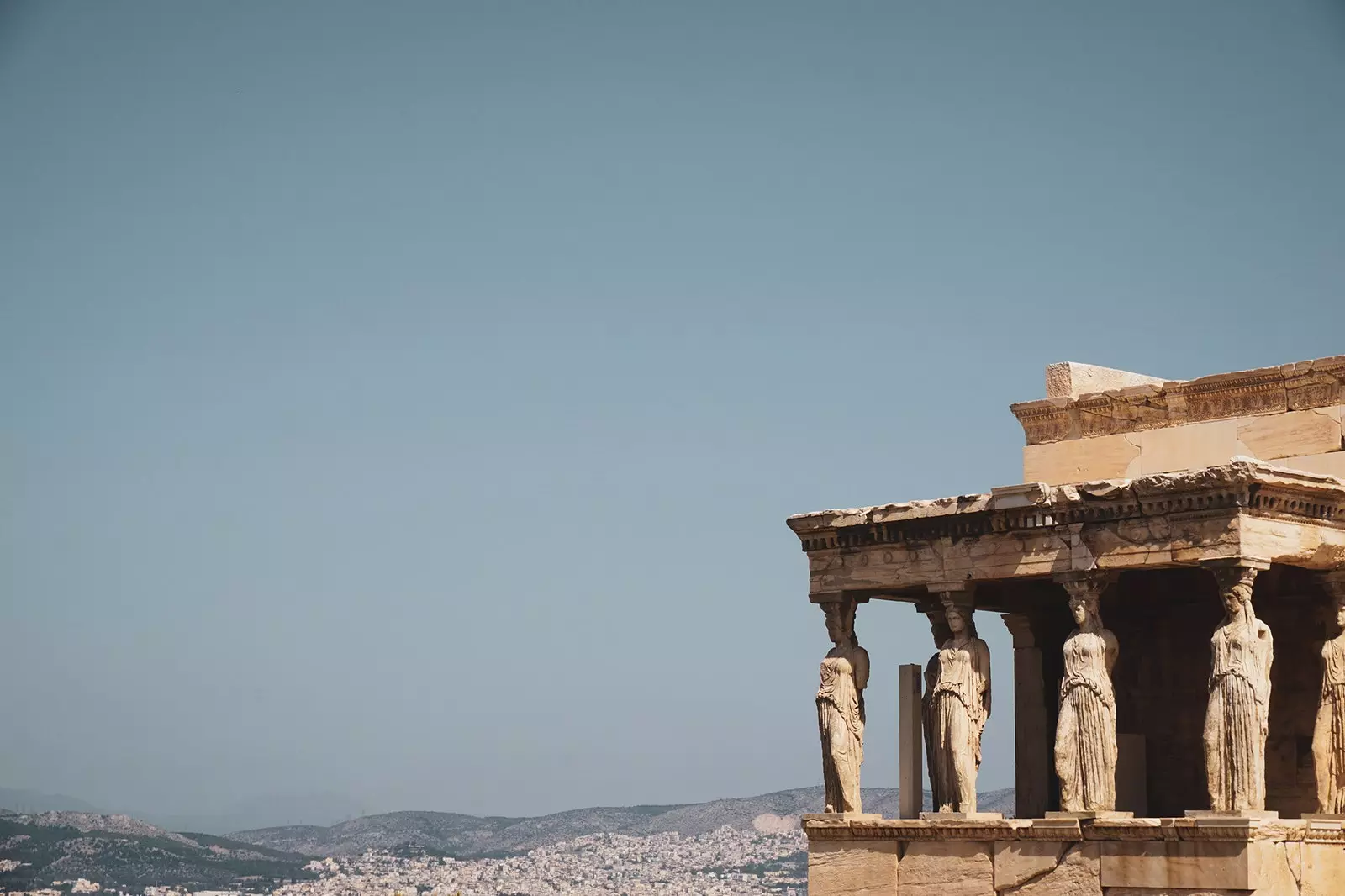
The ancient capital of philosophy has not lost its magical aura, and is impatiently waiting to be rediscovered
Every morning, Pericles, the most remembered politician of the ancient Athenian democracy, climbs the stairs that lead to The Acropolis, and from there, guarded by the Caryatids of the Erechtheum, he contemplates the immensity of the horizon.
His gaze falls on the strong fluted columns of the Parthenon, reading the scenes depicted in its friezes, recognizing himself in the busts carved by Phidias, warms his heart for knowing he is part of something immense. At the feet of him awake Athens, the city where anyone is capable of everything, linked to the port of Piraeus by long walls. And further on, distant and hidden in a mist of saltpetre, resting on the golden patina of the Mediterranean, stands out the island of Aegina.
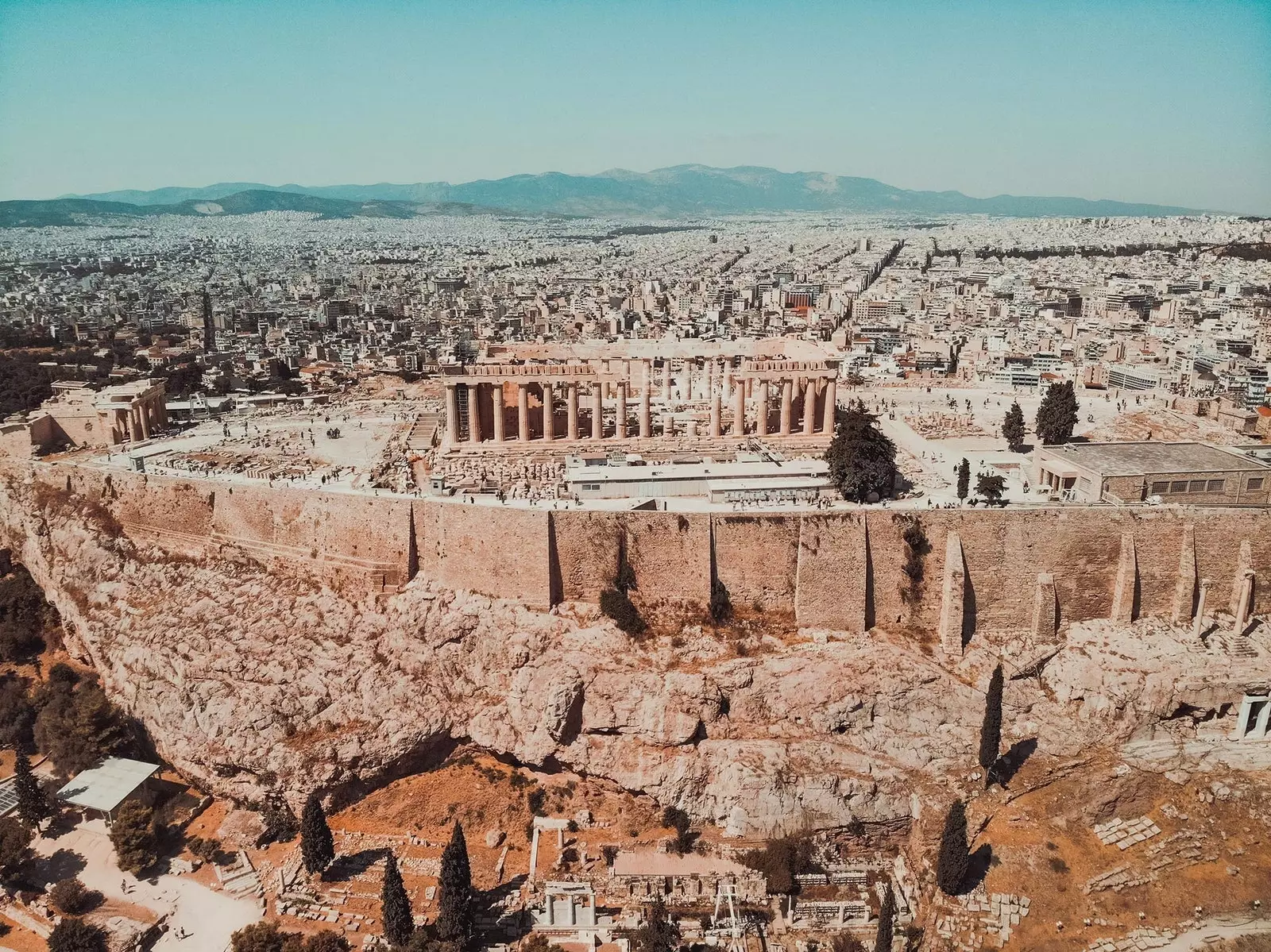
Every morning, Pericles ascended the stairs that led to the Acropolis
Aristotle says that Pericles boiled with rage at the sight of her, and that not even the beauty of the Acropolis could lift the black mist that hung over his sight when it settled on Aegina. Independent and proud, the island refused to be part of the Athenian empire: and Pericles could not tolerate it.
The famous politician, if he had lived in our times, would have removed his mask with a weary gesture, took a deep breath and left for one of the excellent Greek cafes that abound in the Plaka neighborhood, at the very foot of the Acropolis. Bitterness is better forgotten if, sitting on a terrace of Lysakrátous square, taste this drink It has little to do with European coffee, but with those that are prepared on the eastern shore of the Aegean.
Pericles, a key player in the formation of the first Athenian empire, could never suspect that his city would be part of four others, and that everyone would leave their mark on her.
in plaka, Byzantine churches and Ottoman buildings They are watched by the classical temples of the Acropolis, against whose walls echoes of a demonstration of pensioners fighting for their own Aegina: the political spirit of the Greeks did not die with Pericles.
Not everything is light when you walk through Athens, nor do you always breathe the pure air left by the course of History. The modern buildings that invade their neighborhoods ooze Balkan taste, uniform and often unfinished, and the scars of the crisis of 2008 they still bleed in many areas of the city.
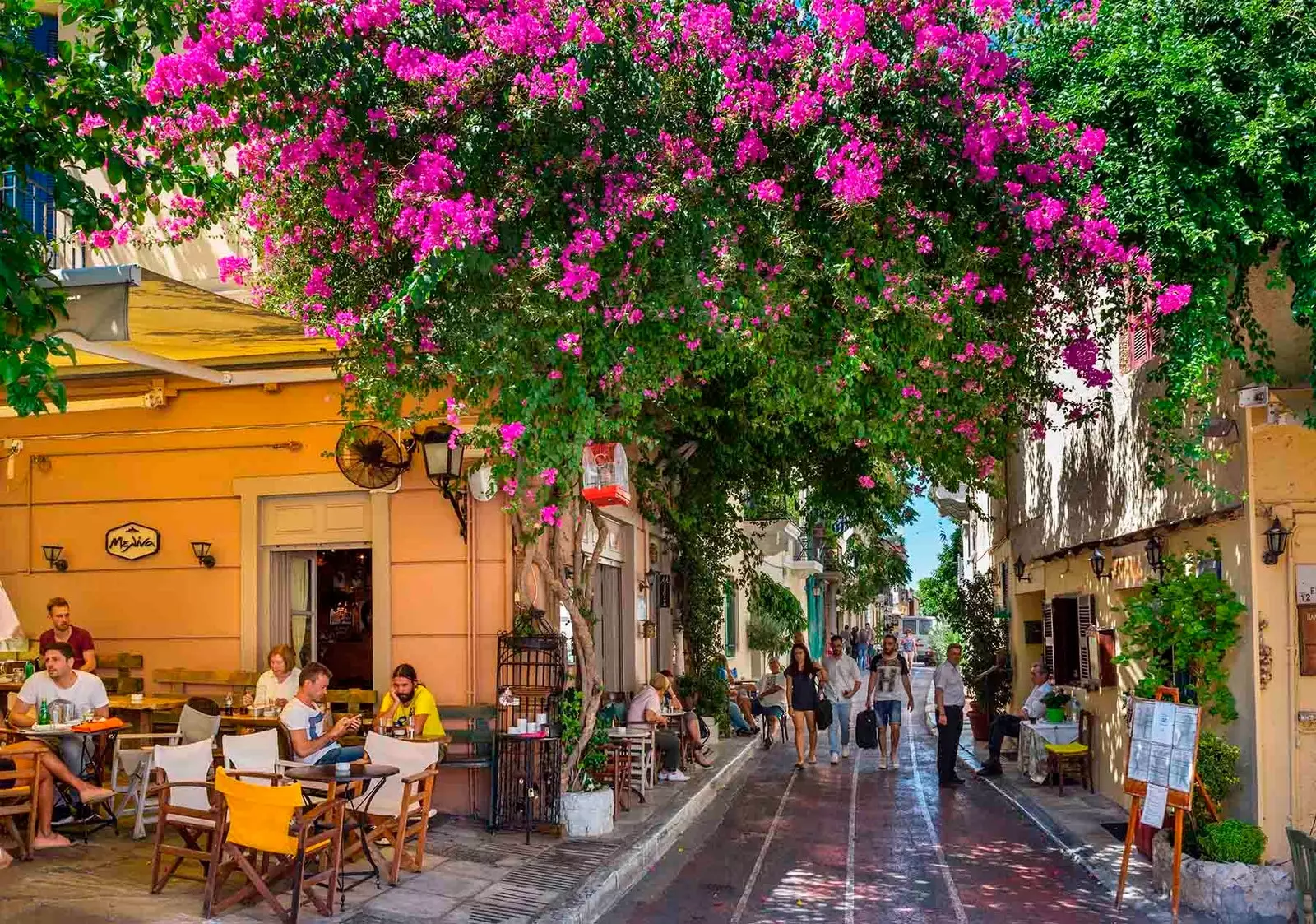
Pericles, had he lived in our times, would have sat in one of the Greek cafes that abound in the Plaka neighborhood
Greece has never stopped running forward, as if the existence of the Acropolis were a perennial reminder of the ability of their ancestors, creating a constant pressure that turns the country into the eternal resigned to not being the one before.
It does not exist in Europe, however, busier city than Athens, with permission from colorful Thessaloniki, nor a more Mediterraneanly felt life like the one worn by the Hellenes. By this I mean his joy, calm and philosophy, as well as the kindness they show to travelers; and that, like the ruins, It should also be a heritage to protect.
The heart of Athens beats in Avissinias square, in the central district of Monastiráki, where the domes of churches and mosques make sure that no one steals from the market stalls. In the distance they are distinguished the columns of the Greek and Roman agoras, and agoraphobics are likely to understand the meaning of their fear when they go to Avissinias Square, the contemporary agora, on a Sunday morning.
The neighbor Ermou street is filled with stalls whose street food It is a symposium of products that could well be seen in Valencia, Sicily, or Istanbul: honey and cinnamon fritters called loukoumádes that melt in your mouth, large olives such as plums, pitas and souvlakis, and sweet wines such as tsípuro, capable of attracting drowsiness.
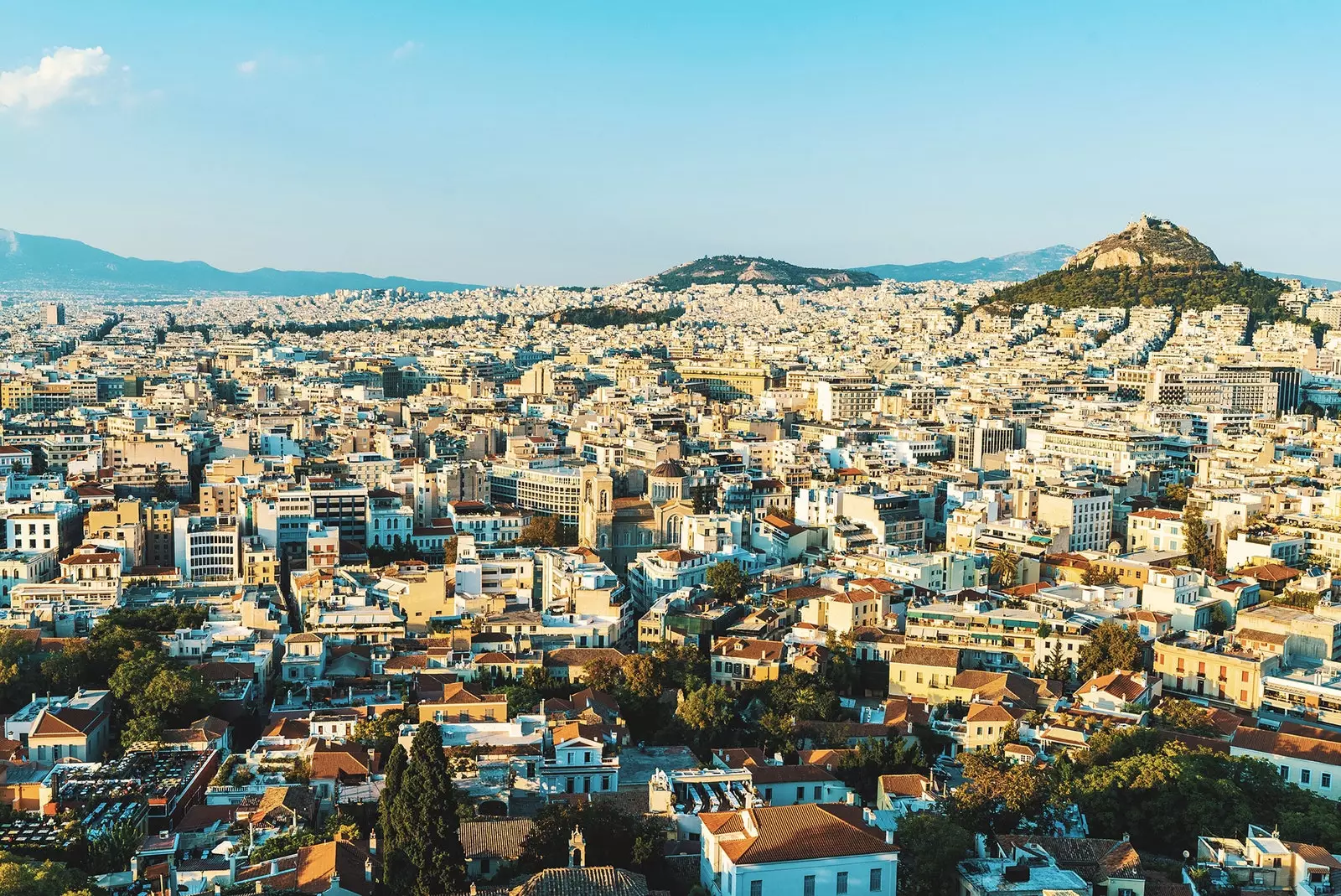
Athens was part of five empires and all left their mark on the city
All these calories will be necessary to be able to cross the crowd and leave the current agora, the beating heart of the city, until we enter its most decrepit skeleton: the hill of the Pnyx.
At the foot of the place where Athenian democracy was born, the Greek agora opens, whose sentinel is the Doric temple of Hephaestus. The pristine cleanliness of its columns is deceptive, because for centuries there was on its stone old graffiti, signatures and marks of how many visitors admired this place not knowing for sure what it was.
Numerous "archaeological liposuctions" have been performed in Athens, consisting of removing all the historical layers of an ancient monument until the most “valuable” emerges: its classical past. Valuable for our western society, supported by a political system whose journey began among the pines that grow with views of the Acropolis, surrounding a stone dais that seems to want to place the speaker in the very center of Athens. In the Pnyx, the people spoke and the gods were silent: until a plague ended the dream.
The popular neighborhoods that surround the Pnyx, such as Petrolone, are the best place in Athens to taste its most democratic dish: mix them up In reality, like any good parliament, it is not about a uniform meal, but about many varied appetizers such as chickpea puree or fish roe, aubergines stuffed with tomato, and ntolmádes (vine leaves stuffed with pine nuts, rice and raisins). Nor will the omnipresent Greek salad with cucumber and feta cheese, or yogurt, thick as half-melted ice cream.
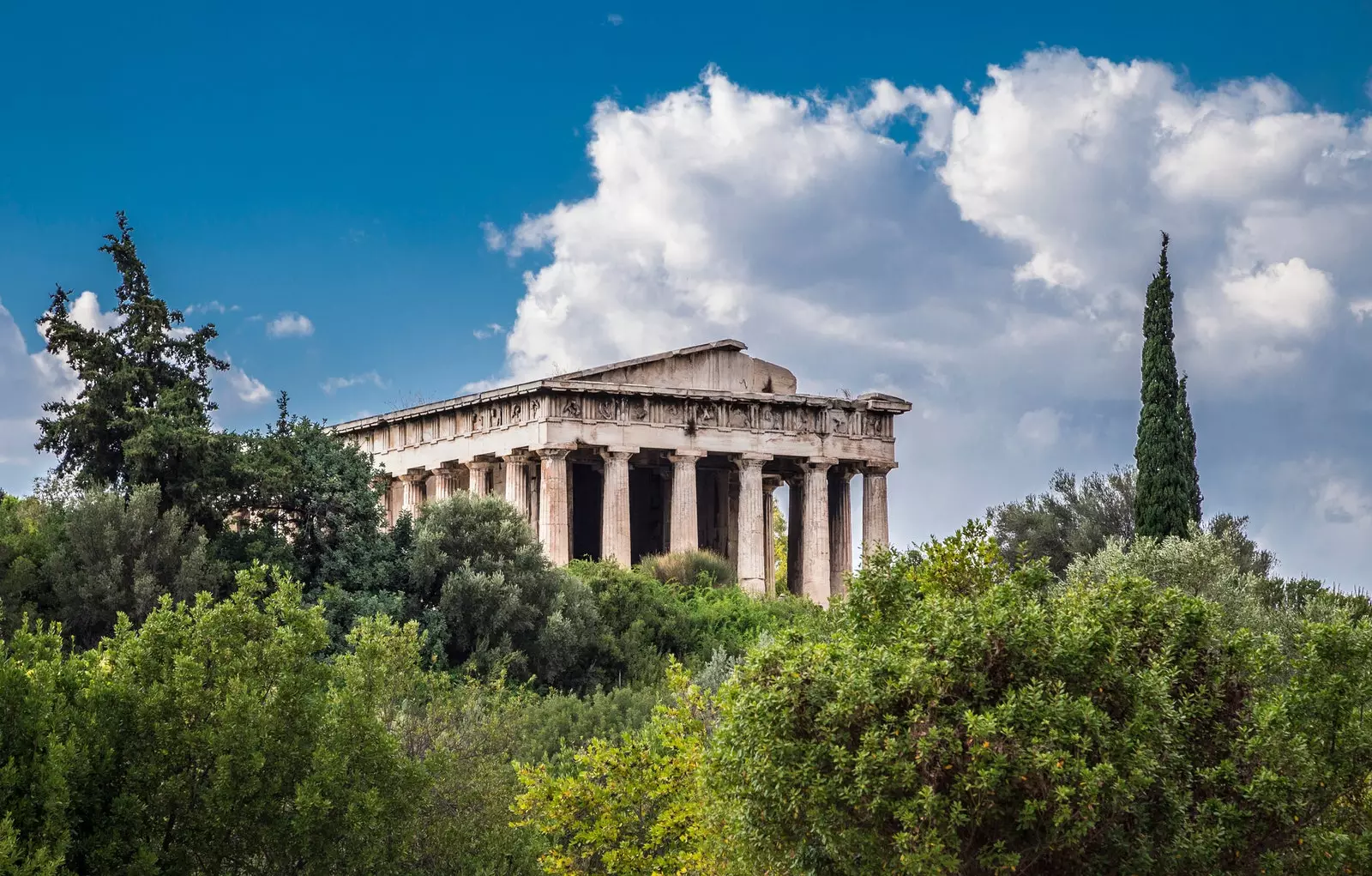
Temple of Hephaestus or Hephaestion
So, from tavern to tavern, we can go walking to Piraeus through straight avenues that follow the traces of the old walls that connected Athens with its port. Piraeus has no other attraction than its fish restaurants and its role in history, as it happens in many neighborhoods of Athens.
The British were not the first to take the art of the city to their homeland, as It was Venetians who stole the stone lions from Piraeus to decorate the entrance to his Arsenal. Each one of the empires that possessed the capital of philosophy took with them a bit of it, wishing possess a tiny part of its former glory, until leaving it bare.
And yet its streets shine, its people smile and the city radiates life At a time when there is so much talk of death. Athens no longer has anything to hide from us: that is why it shows itself, now that it belongs to no one, More beautiful than ever.
